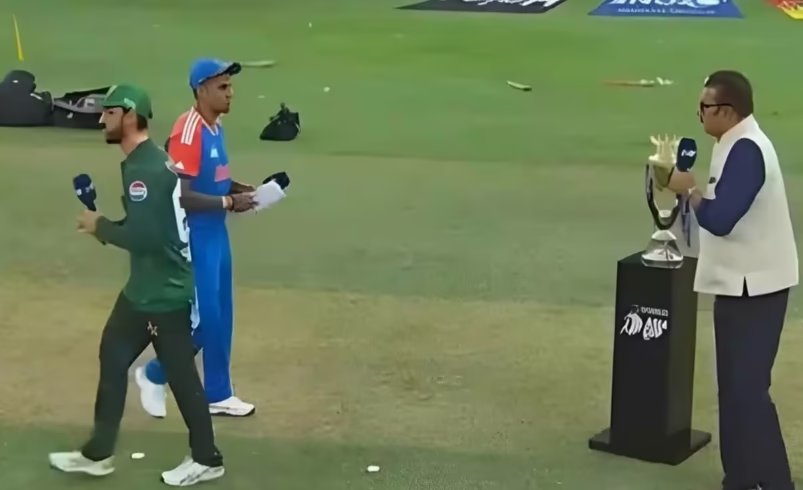India-Pakistan cricket handshake controversy explained
- September 15, 2025
- 0

A fresh controversy has emerged in the world of cricket following the Asia Cup clash between India and Pakistan. The issue centers not on the match itself, but on what happened afterward, when Indian players declined to shake hands with their Pakistani counterparts. This gesture, intended as a mark of respect for victims of the Pahalgam terror attack, has now escalated into a diplomatic standoff within the sport, with the Pakistan Cricket Board (PCB) demanding action against match referee Andy Pycroft.
The Asia Cup encounter between India and Pakistan was already charged with intensity given the long-standing rivalry between the two sides. However, once the game concluded, tensions shifted off the field. Indian players refrained from participating in the customary post-match handshake with Pakistani cricketers. According to reports, this decision was made as a symbolic gesture to honor those affected by the Pahalgam terror attack.
The Pakistan Cricket Board responded firmly to what it viewed as a breach of cricketing etiquette and protocol. The PCB formally demanded that Andy Pycroft, who officiated as match referee for the game, be removed from his duties. Their argument rests on the principle that maintaining sportsmanship traditions is essential to preserving respect between teams, regardless of political or social tensions outside the boundary line.
Handshakes at the end of a match are more than just routine gestures; they symbolize mutual respect and acknowledgment of fair play. In cricket’s long history, this practice has been seen as a way to reinforce camaraderie even after fiercely contested games. When such traditions are disrupted, it can send powerful messages—whether intentional or not—about relationships between teams and nations.
While there is no strict law in cricket that mandates handshakes after every game, it is widely regarded as an unwritten rule of sportsmanship across international competitions. Match referees often oversee these interactions as part of their responsibility to uphold discipline and ensure that both sides adhere to expected standards of conduct. The PCB’s demand for Pycroft’s removal highlights how seriously boards take these symbolic customs when they believe they have been undermined.
The refusal by Indian players was not directed at their opponents personally but was instead framed as an act of solidarity with victims of violence in Pahalgam. However, such symbolic gestures can be interpreted differently depending on perspective, especially when viewed through the lens of national rivalry. For Pakistan’s board and supporters, it raised questions about whether sporting traditions should be set aside for political or social statements on such occasions.
The controversy underscores how even small acts on a cricket field can carry weight far beyond sport itself. What might appear to be a simple breach of etiquette has now become a matter involving official complaints and calls for disciplinary changes at an administrative level. As both boards navigate this sensitive issue, it serves as another reminder that cricket between India and Pakistan is never just about runs and wickets—it is also about symbolism, perception, and diplomacy played out under global scrutiny.